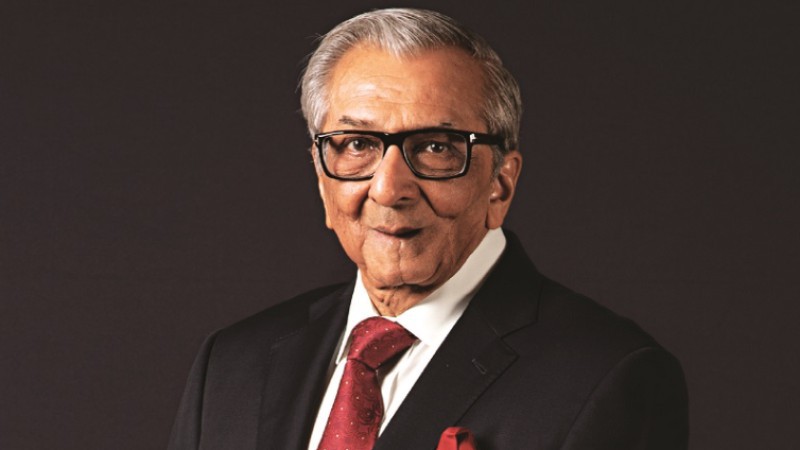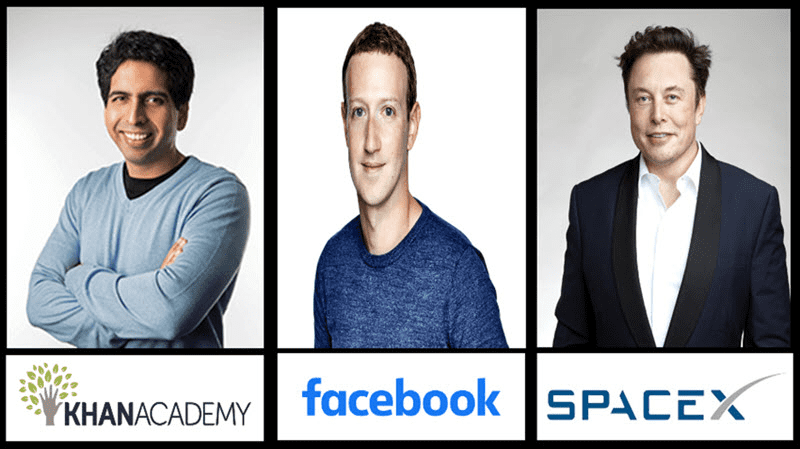Bill Gates, the richest businessman in the world not only gave all his money to charity, but also got thousands of billionaire businessmen globally to sign ‘The Giving Pledge to Donate’ at least half of their wealth to charity. Alas, when he came to India to persuade Indian businessmen to do the same, he went back empty handed, with couple of exceptions like Azim Premji, Kiran Shaw and Shiv Nadar. When ALL top U.S. businessmen are giving ALL of their multi billions to charity, why is there deafening silence in BizIndia?
Well, this is just the beginning of contrast between the U.S. and Indian businessmen. Creativity is another big one. It is the very foundation of American businesses—be it in conceiving the ideas first or improving production or imaginative packaging. On the other hand, what are considered the skills of a smart businessman in India? Most people think of their ability to manipulate the system, manage the politicians and burocrats and borrow huge amounts of money with no intention of repaying to begin with!
It so happens that there is exceptions to every rule and one shouldn’t make blanket statements about anything. However, equally true is the fact that exceptions prove the rule. One should make directionally correct statements and conclusions, always noting the exceptions.
Profits at any cost, with no regards to ethics, laws, environment or human values seems to be the motto and modus operandi in India. The U.S. business competition is quite intense and can be cut throat, but there are severe consequences for violating the laws and norms. Governance cannot be purchased and merit usually wins.
As technology has advanced exponentially, more and more young tech entrepreneurs are dominating the cutting edge businesses in the U.S. Anything and everything that has fundamentally changed the way the whole world lives has been invented, manufactured or commercialized by American entrepreneurs under the age 20! Zuckerberg, Bryan, Jobs and hundreds of others are such tech entrepreneurs. India has no shortage of Gold Medalists and smart people. So why are we still stuck with low end service and mere copying and sub contracting repetitive jobs ? Why is the top tier of Indian business dominated by those best at cozying up to the politicians and managing burocracy?
One can go on and on with the obvious, but the real question is: what is the reason for this difference in Indian vs. American businesses where one excels in a reasonably honest way while that is a distinct disqualification in the other? Some tech entrepreneurs like Azim Premji and Narayan Murthy are of course, notable exceptions.
There is certainly no shortage of excuses like no capital, corrupt system, low quality education, lack of infrastructure etc. etc. Most of these actually happen to be true, but the real answer needs introspection and a frank discussion the Indian ways of doing things.
The real difference between the Indian and U.S. businesses that explains the above observations is surprisingly, none of these excuses. It is the Indian culture! Baffled? You may think, what does culture have to do with business? Isn’t it the money, knowledge, contacts, shrewdness etc. that matters? Well, true, but....Culture is a way of living formed by perhaps thousands of years of practices, norms, rules and edicts and even pre conceived notions. It becomes the DNA that pervades all fields, including of course, the business. Let us examine how various norms and practices in India actually affect business judgments, practices and performance.
1) Family first, merit last—It’s whim you know, not what you know
Family members and blind loyalists (yes men) are valued much more than those with merit. Family structure dominates, so the true merit languishes. The results are then bound to be sub optimal. Most family businesses are mired in family feuds Mahabharata style and the loyalists for each side get rewarded. That is why most family businesses don’t last beyond 2-3 generations. Rapid advances in technology may force a reluctant change but the dominant thinking in Indian businesses is still “we can buy talent”, so it’s a commodity rather than asset. It is hard to see family dominance changing in Indian businesses and they will thus produce sub optimal results.
2) Male Dominance:
As businesses become more and more creativity and communication/collaboration intensive, Indian businesses will pay a heavy price for relegating women to lower positions. It is indisputable that women rank superior in creative thinking, adaptability and collaborative work but India has culturally relegated them to domestic work. They were not even allowed education till about 100 years ago. That is a huge loss of talent for businesses and for all fields for that matter. Contrasting this with America, they have made huge strides in equal opportunity and positions of power for women in business. Many major businesses are now led by women. ( Indra Nooyi Of PepsiCo, for example). With such huge advantage of female talent in the U.S., Indian businesses will never be able to catch up.
3) Respect for Elders: Premium on obedience, free thinking is punished.
Culturally, we are indoctrinated that elders have knowledge/wisdom and you obey them without questions out of respect and deference. As technology is advancing at blinding speed, the rate of obsolescence is supreme. Age is now a liability, not asset. Here, America has the right formula—youth leads the way and carves new paths in business. Sunder Pichai leading Google at the age 35 is a good example.
4) Blind Faith, Hero/God Worship and Dogma:
Not all bad things come top down in Indian businesses. Here is an example of bottoms up blockade to excellence and entrepreneurship in business in India. While challenging authority, dogma and establishment is the core of American spirit, free thinking and fearless action/outspokenness is totally absent in India. People are brainwashed from the childhood for hero/god worship with no question of challenging them. Such indoctrination produces armies of yes men, cowards and mere survivors, not risk takers and free thinkers who can transform businesses. This is why Indian businesses are good at copying, mimicking or low end servicing, but not path breaking new products, inventions or revolutionary technologies like Elon Musk’s ideas.
5) Honesty and Transparency at a Low Premium:
Our history and mythology are replete with stories of even higher powers behaving and achieving their goals in a less than exemplary manner. That is not only condoned but respected and revered. Bypassing and manipulating the system, rules, laws and norms is thus in our DNA. Older the culture, more hypocritical, duplicitous and dishonest it gets. Even in Europe, corruption is highest in Spain, Italy and Greece-seats of the oldest cultures there. Globally, its India, China and Egypt. Newer cultures like the U.S. tend to be very open and for the most part, honest. All of this has a very direct relationship with or reflection in business practices in the respective countries. As business acumen in India is measured in terms of the owner or leader’s ability and expertise in buying or bending the system for short term gains, the premium in honesty is low. Such businesses never excel beyond a limit.
But is it all that pessimistic? I think there is a ray of hope and cause for optimism. That actually comes not from established old line family owned businesses, but from tech savvy brash urban youth, globally connected and mostly free from these old cultural shackles. They are much like their American counterparts—innovative thinkers, risk takers and not afraid to speak or act in unconventional ways. Let’s hope that comes true, for India’s sake.
One can point out more such cultural factors to underscore why Indian businesses will lag their U.S. counterparts in innovation, efficiency and honesty and thus will not be the leaders or path breakers in their fields. The old family owned business model anointing their children to the leadership positions regardless of the merit may wither away over a generation and globalization will weaken the negative cultural aspects that hold back the creative young entrepreneurs.
We will see new, mostly tech based businesses spring up that connect globally, even sitting in Bangalore Or Pune. Good example is the start up BYJU that connects Disney characters to young learners globally in an innovative way. The 35 year old entrepreneur in Bangalore is already a billionaire.
- Sunil Deshmukh
(Author is a U.S.A. based philanthropist and Corporate leader of Wall Street. He is the Originator of prestigious 'Maharashtra Foundation Awards for Literature and Social work'. His E-mail id is sunild@aol.com)
Tags: इंग्लिश Business उद्योग सुनील देशमुख अमेरिका sunil deshmukh america Azim Premji Bill Gates Load More Tags













































Add Comment